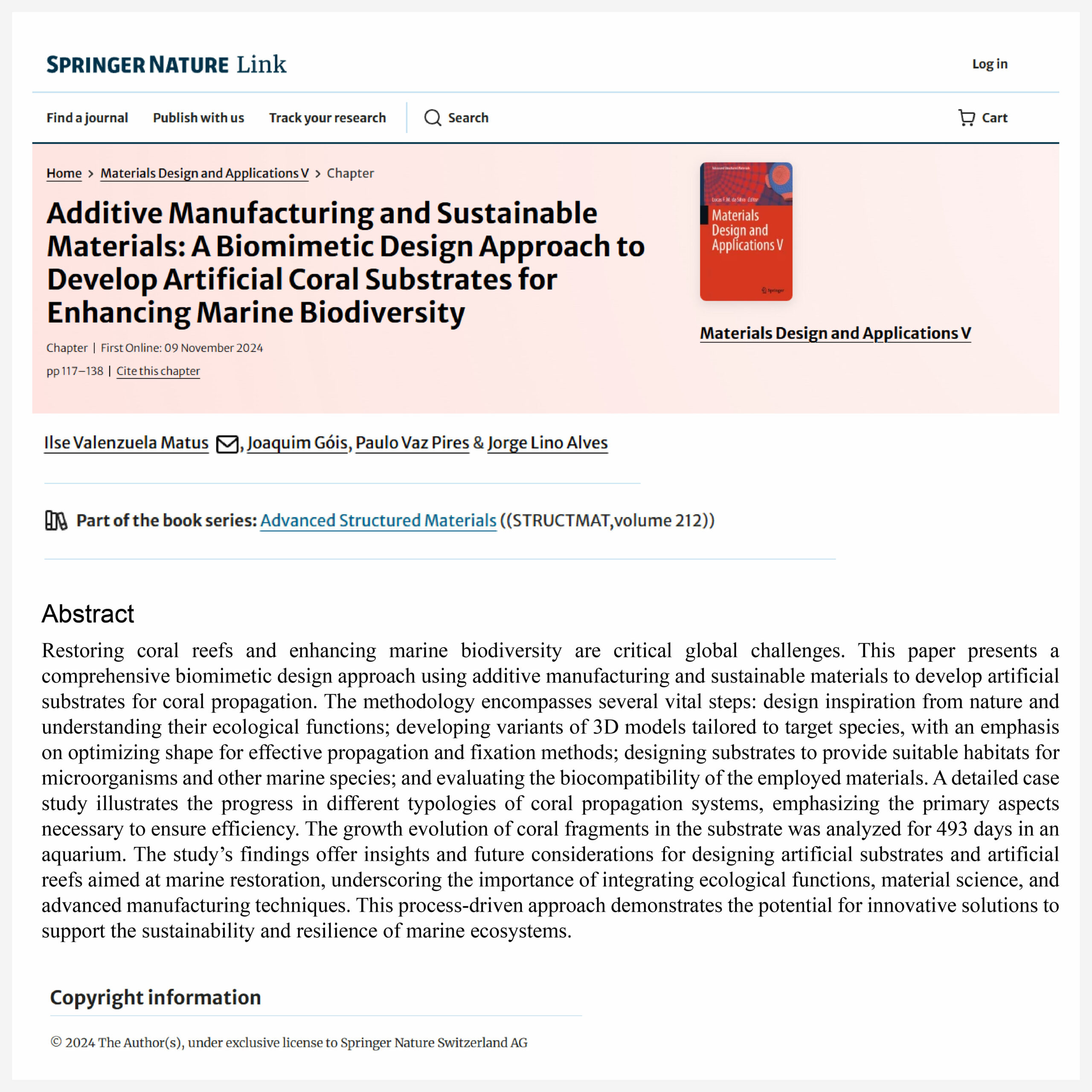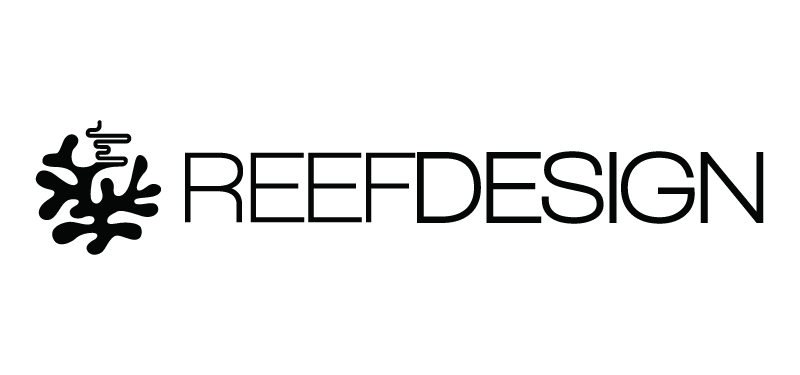Springer Nature – Research Chapter 2024

Category
White PapersAbout This Project
Restoring coral reefs and enhancing marine biodiversity are critical global challenges. This paper presents a comprehensive biomimetic design approach using additive manufacturing and sustainable materials to develop artificial substrates for coral propagation. The methodology encompasses several vital steps: design inspiration from nature and understanding their ecological functions; developing variants of 3D models tailored to target species, with an emphasis on optimizing shape for effective propagation and fixation methods; designing substrates to provide suitable habitats for microorganisms and other marine species; and evaluating the biocompatibility of the employed materials. A detailed case study illustrates the progress in different typologies of coral propagation systems, emphasizing the primary aspects necessary to ensure efficiency. The growth evolution of coral fragments in the substrate was analyzed for 493 days in an aquarium. The study’s findings offer insights and future considerations for designing artificial substrates and artificial reefs aimed at marine restoration, underscoring the importance of integrating ecological functions, material science, and advanced manufacturing techniques. This process-driven approach demonstrates the potential for innovative solutions to support the sustainability and resilience of marine ecosystems.


